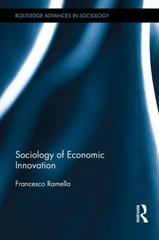Answered step by step
Verified Expert Solution
Question
1 Approved Answer
Explain this quote: The obligations of the law of nature cease not in society, but only in many cases are drawn closer, and have by
- Explain this quote: "The obligations of the law of nature cease not in society, but only in many cases are drawn closer, and have by human laws known penalties annexed to them, to enforce their observation. Thus the law of nature stands as an eternal rule to all men, legislators as well as others. The rules that they make for other men's actions, must, as well as their own and other men's actions, be conformable to the law of nature, i.e. to the will of God, of which that is a declaration; and the fundamental law of nature being the preservation of mankind, no human sanction can be good or valid against it" (381). Why can't the legislative branch hand over the function of lawmaking to someone else?
- Outline the duties of the executive, legislative and federative branches as Locke laid them out. What are some unique aspects of each branch that Locke outlines?
- Outline Locke's views of what conquerors are and are not entitled to in relation to the conquered. What are the differences in terms of a just versus an unjust war? Why don't conquerors have a right to take the land of the existing commonwealth?
- What are the two fundamental human rights that Locke outlines in Chapter XVI? Why does Locke claim that one isn't a citizen just by being born into a commonwealth? What must be given up if one chooses to not be a part of the commonwealth they're born into? Why?
- What does Locke have to say about usurpers in government? What rights do they have within the commonwealth? Why?
- What is Locke's definition of tyranny? Why does he think tyranny can happen in any form of government? Why does he claim that powerful and wealthy individuals should be more ashamed of being tyrannical than the poor and those that lack power?
- What does Locke have to say about the rights of a prince's and king's magistrates (or people that work for the king/prince)? If a state claims that the prince/king can operate outside of the laws of a commonwealth, does that mean his magistrates can? Why or why not? In what cases are people justified in using deadly forces against others?
- Go over the primary causes that Locke lists for the dissolution of governments (both from without and from within the commonwealth). When do people have the right to rebel against their government?
- What branch of government does Locke claim holds the most importance? Why does it hold so much importance?
- Outline Locke's reasons why giving people the right to rebel against their governments will not necessarily give rise to frequent rebellions.
Step by Step Solution
There are 3 Steps involved in it
Step: 1

Get Instant Access to Expert-Tailored Solutions
See step-by-step solutions with expert insights and AI powered tools for academic success
Step: 2

Step: 3

Ace Your Homework with AI
Get the answers you need in no time with our AI-driven, step-by-step assistance
Get Started


